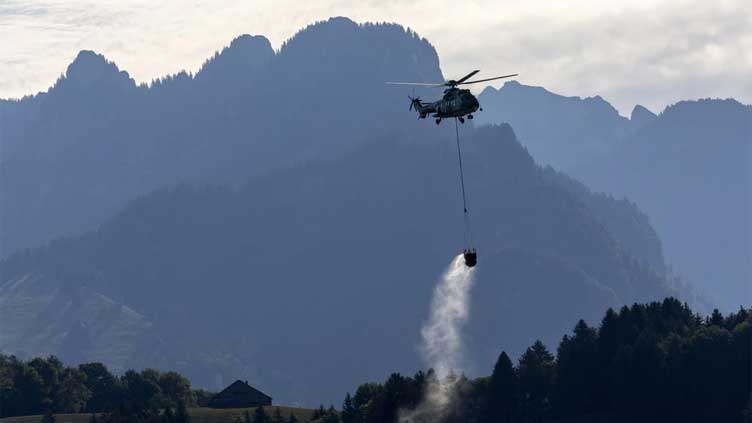Swiss army airlifts water to thirsty animals in Alpine meadows

World
Swiss army airlifts water to thirsty animals in Alpine meadows
CHARMEY, Switzerland, Aug 11 (Reuters) - Swiss army helicopters have been drafted in to airlift water to thousands of thirsty farm animals sweltering under this summer’s soaring temperatures in the country’s Alpine meadows.
Lower rainfall this year forced farmers to call on the army to swoop in with much-needed refreshments for their animals and prevent a drought causing feed shortages later in the year.
A two-week operation is now under way with Super Puma helicopters flying to refill the near-empty reservoirs used by farmers for their cows, whose milk is often used to make Gruyere cheese, and other animals such as pigs and goats.
"There’s been a huge shortage of water this year," said Frederic Menetrey, director of agriculture in the canton of Fribourg. "It has a big impact on the pastures, breeding but also lowland agriculture."
Without the emergency water supply, the animals would have to be brought down from their elevated fields to graze in lowlands, where normally their winter hay is produced during the summer months.
"They will eat the hay that was supposed to be eaten during the winter, so the situation will get worse later in the year,"
Menetrey told Reuters.
Farmer Jacques Ruffieux, whose 130 cattle need 10,000 litres (2,640 U.S. gallons) of water per day, said it had been a painful year marked by very little rain.
"Since June 27, we only had 30 litres, it’s nothing," said the farmer, adding the army arrived just in time.
"We were a day and half from not having anything at all, it was very close," he said.
Swiss territorial army commander Mathias Tuescher said six helicopters had been mobilised for the effort, which will run until Aug. 19.
Overall some 400,000 tonnes of water could be dropped by the helicopters into the reservoirs, he said, with 1.5 tonnes delivered each trip.
The operation was also carried during the droughts of 2015 and 2018.
"With global warming, there is a probability that this kind of mission would be more frequent in the future," he said.


